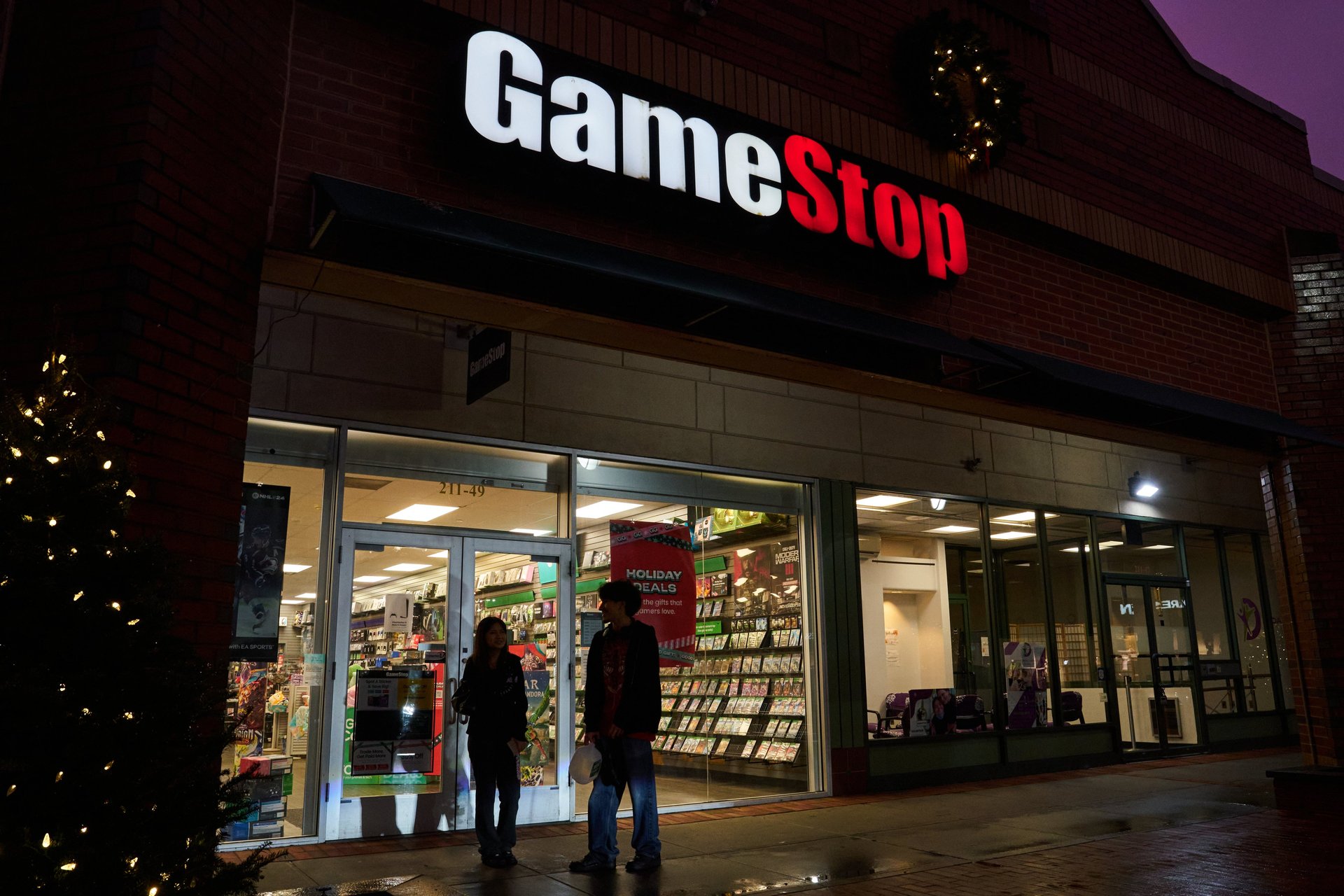The meme stock rally caught hedge funds by surprise last time. Not this time
Firms like Citron Capital and Melvin Capital were battered by the 2021 GameStop frenzy. Things were different this week

Hedge funds were caught off guard in early 2021, when retail investors suddenly put the squeeze on GameStop stock that they had been shorting. But when the meme stock frenzy came back with a fury this week — and then fizzled fast — things were different.
Suggested Reading
Volatility is part of the market, and learning to play it is how investors are able to make big returns on their money. But so-called “meme stocks” have continued to cause headaches for hedge funds — especially when there’s a frenzy.
Related Content
Meme stocks refer to shares of companies that are wildly popular online — mainly thanks to chatter on Reddit forums and TikTok — and are traded feverishly by retail investors, sending prices soaring regardless of the company’s actual operating results or prospects.
By joining forces to buy up GameStop shares and boost its value, individual traders led by investor Keith Gill — better known by his online persona “Roaring Kitty” — crusaded against hedge funds that were profiting off the video game retailer’s declining business. Hedge funds pool investors’ money and invest it in things like short-selling and other more speculative practices that are typically not used by traditional mutual funds.
In doing this, Gill and his followers created what’s known as a “short squeeze” in early 2021, forcing the hedge funds that had shorted the company’s stock to buy up more shares in an attempt to shield themselves from losses — sending the stock “to the moon.” During the squeeze, GameStop’s shares surged more than 1,000% in a matter of weeks. (When traders short-sell a stock, they are betting that the stock will fall by borrowing shares and selling them high, with the belief that they can be repurchased later at a lower price.)
As a result of the 2021 rally, short-sellers lost more than $6 billion on a year-over-year basis, according to the analytics firm S3 Partners. Some popular hedge funds, like Citron Capital and Melvin Capital, were hit especially hard because of their short positions on GameStop. Citron’s founder Andrew Left said in January 2021 — at the height of the first meme stock mania — that his company would no longer publish short-selling research. And despite a $25 billion lifeline from Citadel, Melvin shuttered its operations in 2022 in the aftermath of the squeeze.
Both companies had been shorting GameStop, and reportedly lost billions from the stock surge.
A short-lived meme stock renaissance
Roaring Kitty’s return this week sent shares of GameStop soaring once again. The stock closed out the trading day Monday up almost 75%, and extended its gains into Tuesday before slipping during Wednesday trading.
This frenzy helped send other meme stocks higher, with AMC Entertainment rising 32% — before also dropping off on Wednesday. Popular memecoins Dogecoin and Shiba Inu also saw some smaller jumps.
But Mario Iachini, senior vice president at Vanda Research, told Yahoo Finance that hedge funds are more prepared to handle meme stock-related volatility, having learned their lessons after 2021.
“Quant/hedge funds are much better equipped to handle these situations nowadays,” Iachini said. “If anything, we believe the chances that they participate along with retail in the squeeze but also lean against and then exit these trades ahead of retail traders are high.”
Within just two days, short-sellers as a whole lost more than $2 billion. They recovered about half of that after the stock began to sink on Wednesday, data from S3 Partners shows.
The quick drop-off in share price confirmed what Dan Egan, the head of behavioral finance at investment advisor Betterment, predicted: The current meme stock rally will be shorter-lived and more muted than the last.
“There might be a large body of meme stockholders who bought during the last rally looking to get out,” Egan said. “People with a losing stock will be motivated to sell as soon as they’re back to even, which will put some downward pressure on the price as it hits higher price points.”
